Alzheimer’s Awareness Month – Reducing the Risks
This September marks the 10th anniversary of World Alzheimer’s Month, a month that focuses on raising awareness of the risks and symptoms and challenging stigmas surrounding Alzheimer’s and dementia.
Alzheimer’s disease is the most common cause of dementia, a degenerative brain condition, with 50-60% of all dementia cases presenting with Alzheimer’s.
Age is the most associated risk factor for Alzheimer’s, with dementia affecting 1 in 7 people aged 65-70. This figure rises to 1 in 5 people over 80. However, Alzheimer’s Disease International states it is important to note that dementia is not a ‘normal part of aging. Approximately 1 in 20 people with Alzheimer’s disease are under 65.
There are many innovative technology supports that can help those diagnosed with Alzheimer’s’ and dementia live an independent and fulfilled life, while giving their families peace of mind.
The Isaac Pendant has been developed to support those diagnosed with Alzheimer’s and dementia. The easy to use pendant allows the user to easily contact their nominated emergency contacts should they need help, no matter when or where they are. Our family caring app allows families to set up GPS zones and notifies the family of their exact location should they call for help.
It is important to take control of your own health and well being especially as we age. The Isaac Pendant allows you to do just that with access to 24/7 telehealth care it is not just another falls alarm. The pendant linked with the Isaac Care app tracks weight management has medication reminders and allows for you and your circles of care to view your vitals. All of which can assist in reducing the risk of developing Alzheimer’s and dementia.
Risk Factors
While aging, family history, and genetic predisposition are leading risk factors in developing Alzheimer’s and dementia there are 12 modifiable risk factors that studies show could delay 40% of cases.
- Physical Inactivity
- Social Isolation
- Depression
- Smoking
- Excessive Alcohol Consumption
- Head Injuries
- Diabetes
- Obesity
- Hypertension
- Hearing Loss (undiagnosed/untreated)
- Air Pollution
- Less Education
The breakdown of percentage of reduction in developing dementia if these risk factors are eliminated, in Early Life, Mid Life and Later is:
Early Life – Less Education 7%
Mid Life – Hearing Loss 8%, Head Injury 3%, Hypertension 2%, Obesity 1%, Alcohol Consumption (>21 units per week) 1%.
Later Life – Smoking 5%, Depression 4%, Social Isolation 4%, Physical Inactivity 2%, Air Pollution 2%, Diabetes 1%.
Reducing the Risks
Adopting a healthy change in lifestyle can be a difficult task however small changes could potentially significantly reduce your risk of developing Alzheimer’s and dementia.
A leading factor in a number of health issues, not just Alzheimer’s and dementia is Physical inactivity.
Not only is regular physical activity good for the mind, balance, circulation, and motor skills, it can help with weight management, control high blood pressure. It can also decrease the risk of depression, lower the risk of falls and fall-related injuries. Finding exercise or physical activity that works for you will make it easier to get into the routine of doing it regularly.
The WHO recommends that adults over the age of 65 should aim for 150 minutes of moderate to intense aerobic activity or 75 minutes of vigorous aerobic activity once or twice a week.
Vigorous aerobic activities such as running, cycling, or playing sport may not be suited to everyone, however moderate aerobic activities like a short walk, gardening, water aerobics, even pushing a lawnmower are also extremely beneficial forms of physical activity and great starting points.
If you are someone who has been very sedentary then it is best to start with light forms of physical activity and gradually increase. For example: start with a short walk build to longer walks with higher inclines. Basically, some exercise or physical activity is better than nothing. Of course, always consult your GP before taking on any form of strenuous exercise.
Mental exercises are just as important as physical exercise. They keep cognitive decline at bay, which is a key risk factor in developing Alzheimer’s and dementia. Challenging your brain with puzzles, crosswords and reading are great ways to stimulate your brain. They are forms of cognitive training that have been proven to lower the risk of MCI (mild cognitive impairment).
Social Isolation has impacted everyone due to COVID-19 restrictions. A lack of social interaction can lead to a decline in cognitive function, increase the risk of depression, and result in negative behavioural change, all of which are linked to Alzheimer’s and dementia.
Social activities can be anything from joining a club, meeting friends, or revisiting a hobby you once had an interest in, even making the effort to chat with friends and family more often.
Getting back to socialising may be daunting, but The Isaac Pendant is available to offer you peace of mind that help is there 24/7 no matter when or where you are. The GPS geofencing zones mean you can regain your independence and take up hobbies that not only help you socialise but can exercise your mind.
For more information check out The Isaac Pendant Here.
Get in Touch
Our dedicated team are on hand to assist you in any way. Contact us on (042) 936 8391 or fill in your details in the contact form and one of our team will be in touch.





